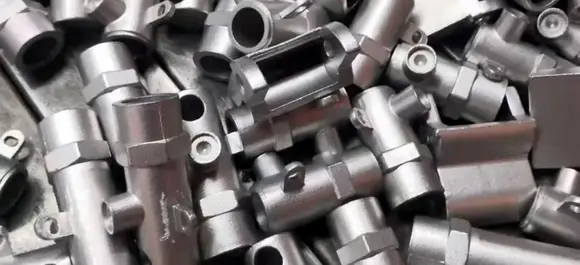Mobile:+86-311-808-126-83
Email:info@ydcastings.com
reusable metal casting molds
The Adoption of Reusable Metal Casting Molds in Modern Manufacturing
The manufacturing sector has witnessed remarkable transformations over the years, particularly with the advent of advanced technologies and sustainable practices. Among these innovations, reusable metal casting molds stand out as a significant development that enhances efficiency, cost-effectiveness, and environmental sustainability in the production process. This article explores the advantages, applications, and future prospects of reusable metal casting molds.
Advantages of Reusable Metal Casting Molds
One of the primary benefits of using reusable metal casting molds is their economic efficiency. Traditional molds, often made from sand or other materials, are typically single-use and must be replaced for each cast. This leads to high material costs and contributes to waste. In contrast, reusable metal molds can withstand multiple casting cycles, significantly reducing material consumption and overall production costs. Manufacturers can save on both raw material expenses and disposal costs, leading to a more financially sustainable operation.
Moreover, reusable molds enhance production efficiency. Metal molds provide superior thermal conductivity compared to traditional materials, allowing for faster cooling and solidification of molten metal. This not only accelerates the casting process but also improves the mechanical properties of the finished products. The precision and durability of metal molds ensure consistent quality in each casting, minimizing defects and the need for extensive post-processing.
Environmental Impact
The environmental impact of manufacturing processes is an increasing concern in today’s world. Reusable metal casting molds contribute positively to sustainability efforts. By reducing the need for single-use materials, manufacturers can significantly decrease their reliance on raw materials, lowering the energy consumption associated with material extraction and processing. Additionally, reducing waste generation is a critical step towards minimizing the overall carbon footprint of manufacturing activities.
reusable metal casting molds

Even more, advancements in mold manufacturing technologies, such as computer numerical control (CNC) machining and additive manufacturing, enable the production of more intricate and efficient mold designs. These innovations can optimize the performance of the molds, leading to even less waste and enhanced use of resources.
Applications in Various Industries
The versatility of reusable metal casting molds finds applications across a broad spectrum of industries. In the automotive sector, these molds are utilized to produce components with precise dimensions and superior strength, essential for safety and reliability. The aerospace industry also benefits immensely from reusable molds, where performance and weight are critical factors. Additionally, consumer goods, industrial machinery, and electronics all leverage the precision and efficiency of metal casting to meet stringent quality standards.
Future Prospects
The shift towards reusable metal casting molds is expected to accelerate as industries continue to prioritize sustainability and cost reduction. As research and technology advance, the development of even more durable and efficient mold materials is on the horizon. Innovations in 3D printing technology are also poised to transform the design and production of metal casting molds, allowing for on-demand manufacturing and customization.
In conclusion, reusable metal casting molds represent a pivotal shift in manufacturing processes, promoting cost savings, improved efficiency, and sustainability. Their broad range of applications across various industries underscores their significance in modern manufacturing. As companies continue to embrace eco-friendly practices, the adoption of reusable metal molds will undoubtedly play a key role in shaping the future of manufacturing. The journey towards a more sustainable industrial landscape is well underway, and reusable metal casting molds are leading the charge.
-
Understanding Metal Casting TechniquesNewsApr.02,2025
-
Understanding Exhaust Manifolds for Enhanced Engine PerformanceNewsApr.02,2025
-
The World of Metal FabricationNewsApr.02,2025
-
Key Components for Pump and Turbo EfficiencyNewsApr.02,2025
-
Essential Tools for Automotive Maintenance and RepairNewsApr.02,2025
-
Durable Valve Components for Effective Water ManagementNewsApr.02,2025











